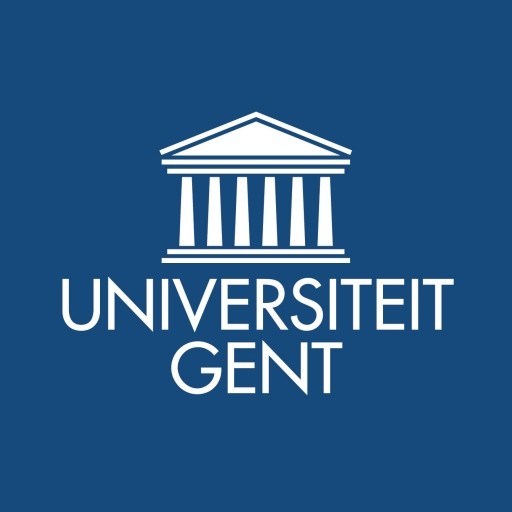Photos of university / #thefoundry_ugent
The Master's Degree in Systems Biology at Ghent University offers an innovative and multidisciplinary approach to understanding the complexity of biological systems. Designed for students with a passion for biology, mathematics, and computer science, this programme provides comprehensive training in the integration of experimental methods with computational modeling to analyze and interpret biological data at different levels of organization, from molecules to entire ecosystems. Throughout the programme, students will acquire strong skills in systems analysis, data analysis, bioinformatics, and mathematical modeling, enabling them to address current challenges in health, agriculture, and environmental sustainability. The curriculum includes coursework in molecular biology, biochemistry, systems modeling, statistics, and programming, complemented by practical laboratory work and project-based learning. Students will also have the opportunity to work on cutting-edge research projects under the supervision of experienced faculty members, fostering innovation and critical thinking. The programme emphasizes a collaborative learning environment, encouraging teamwork and interdisciplinary communication, which are essential for success in the rapidly evolving field of systems biology. Graduates of this programme will be prepared for careers in academia, industry, biotechnology, healthcare, and research institutions, where they can contribute to advancements in personalized medicine, drug development, and sustainable agricultural practices. By the end of the programme, students will have developed a solid foundation in systems biology methods, experimental design, and data interpretation, equipping them with the tools needed to make significant impacts in science and society. Join Ghent University's Systems Biology Master's programme and become a part of the next generation of scientific innovators dedicated to unraveling the complexities of life through a systems-level perspective.
General Courses
- Statistical Genomics
- Applied High-throughput Analysis
- Genome Biology
- Integrative Biology
- Design Project
Courses Related to the Main Subject
- Evolutionary Biology
- Biostatistics
- Capita Selecta in Bioinformatics
- Modelling of Biological Systems
- Proteomics
- Molecular Microbial Ecology
- Metabolic Engineering
- Microbial Genomics
- Microbial Re-use Technology
- Fungal Biotechnology
- Structure and Function of Biological Macromolecules
- Structural Bioinformatics
- Drug Design
- Experimental Structural Biology
- Human Genetics and Genetic Diseases
- Molecular Cancer Biology
- Experimental Molecular Cell Biology
- Molecular and Experimental Immunology
- Transgenetics of Animal Model Organisms
- Cancer Genetics [nl]
- Specialised Human Genetics [nl]
- Developmental Genetics and Genregulation [nl]
- Molecular Immunology [nl]
- Immunology
- Plant Research Technologies
- Functional Plant Genomics
- The Plant Cell
- Plant Growth and Development
- Physiological Regulation in Plants
- Metabolic Engineering
- Molecular Plant Breeding
- Categorical Data Analysis
- Analysis of Clustered and Longitudinal Data
- Bayesian Statistics
- Experimental Design
- Epidemiology and Clinical Trials
- System Programming
- Object Oriented Programming
- Databases [nl]
- Biological databases
- Programming for Bioinformatics
- Selected Topics in Mathematical Optimization
- Bioinformatics Algorithms
- Predictive Modelling
Requirements
- Applicants must have at least a Bachelor's degree of min. 3 year with good overall scores (at least a second class upper or equivalent).
- Applicants must be able to demonstrate through their transcripts basic science training in at least 5 out of 7 of the following fields: (i) Mathematics, including basic statistics; (ii) Physics; (iii) Chemistry; (iv) Biochemistry; (v) Biology; (vi) Microbiology; (vii) Engineering. Some background in aquaculture is recommended too.
- Language requirements:
The applicant must be proficient in the language of the course or training programme, i.e. English. The English language proficiency can be met by providing a certificate (validity of 5 years) of one of the following tests: (TOEFL/IELTS predictive tests and TOEIC will not be accepted)
- TOEFL IBT 80
- TOEFL PBT 550
- ACADEMIC IELTS 6,5 overall score with a min. of 6 for writing
- CEFR B2 Issued by a European university language centre
- ESOL CAMBRIDGE English CAE (Advanced)
Scholarships
- VLIR-UOS Scholarships
- Master grants
- University Development Cooperation Programme
Systems Biology at Ghent University is an interdisciplinary Master's degree programme that aims to equip students with a comprehensive understanding of biological systems through computational and experimental approaches. The curriculum integrates concepts from biology, mathematics, physics, and information technology, fostering a multidisciplinary mindset essential for modern biological research. The programme emphasizes the analysis and modeling of complex biological networks, including gene regulation, metabolic pathways, and cellular signaling. Students gain practical skills in data analysis, computational modeling, and systems-level understanding of biological processes, which are crucial for advancing personalized medicine, biotechnology, and environmental sciences. The programme includes coursework, laboratory work, and research projects, often in collaboration with industry and research institutions. Graduates of the programme are prepared for careers in academia, research organizations, pharmaceutical companies, and biotechnology firms, where they can apply their expertise to develop innovative solutions and contribute to scientific advancements. Ghent University's strong research focus and state-of-the-art facilities provide students with valuable hands-on experience in cutting-edge technologies. The programme encourages international collaboration and offers various opportunities for Erasmus exchanges and joint degrees. Overall, the Master's in Systems Biology at Ghent University provides a rigorous, comprehensive education designed to prepare students for the rapidly evolving field of biological systems research.



